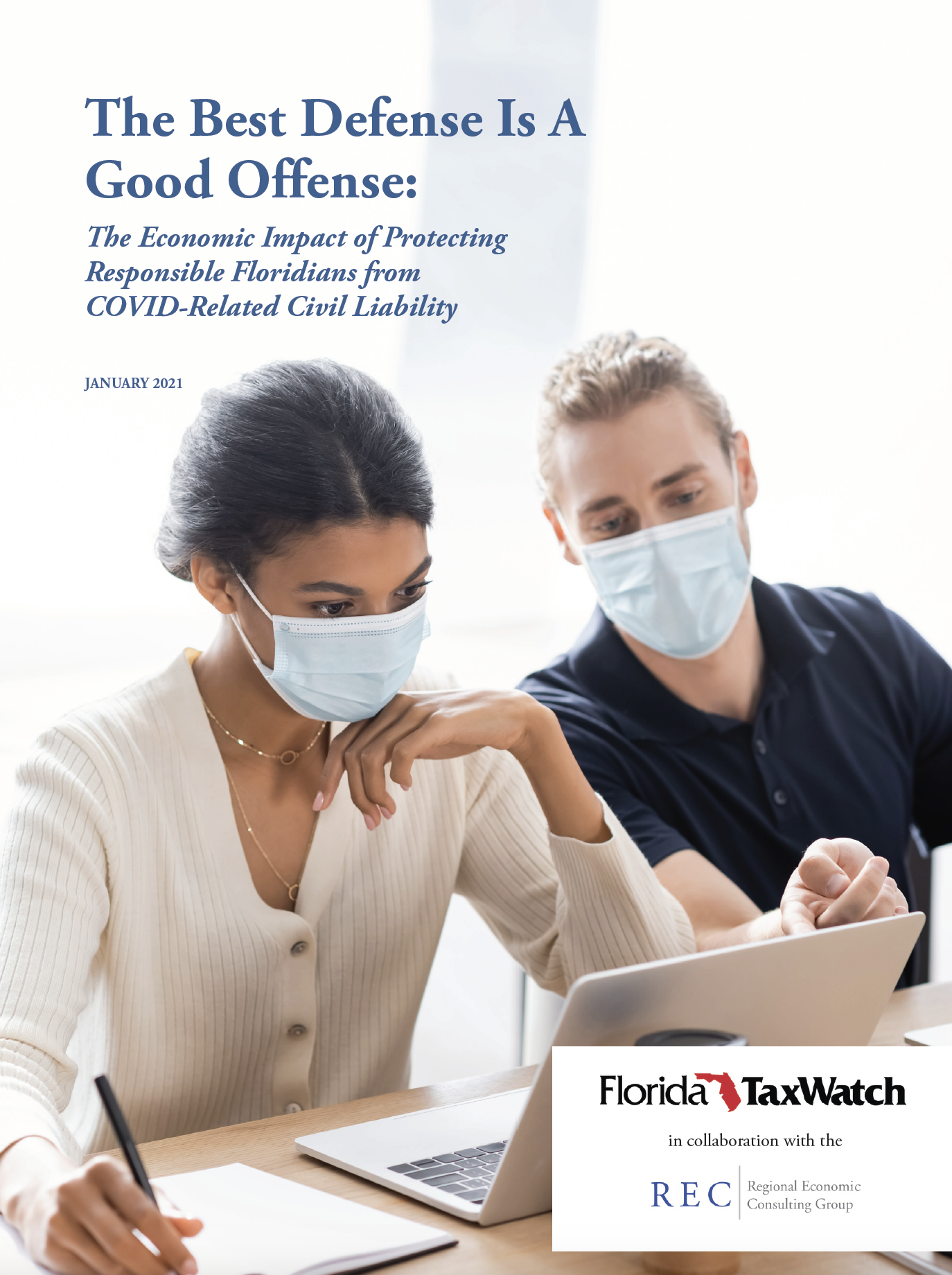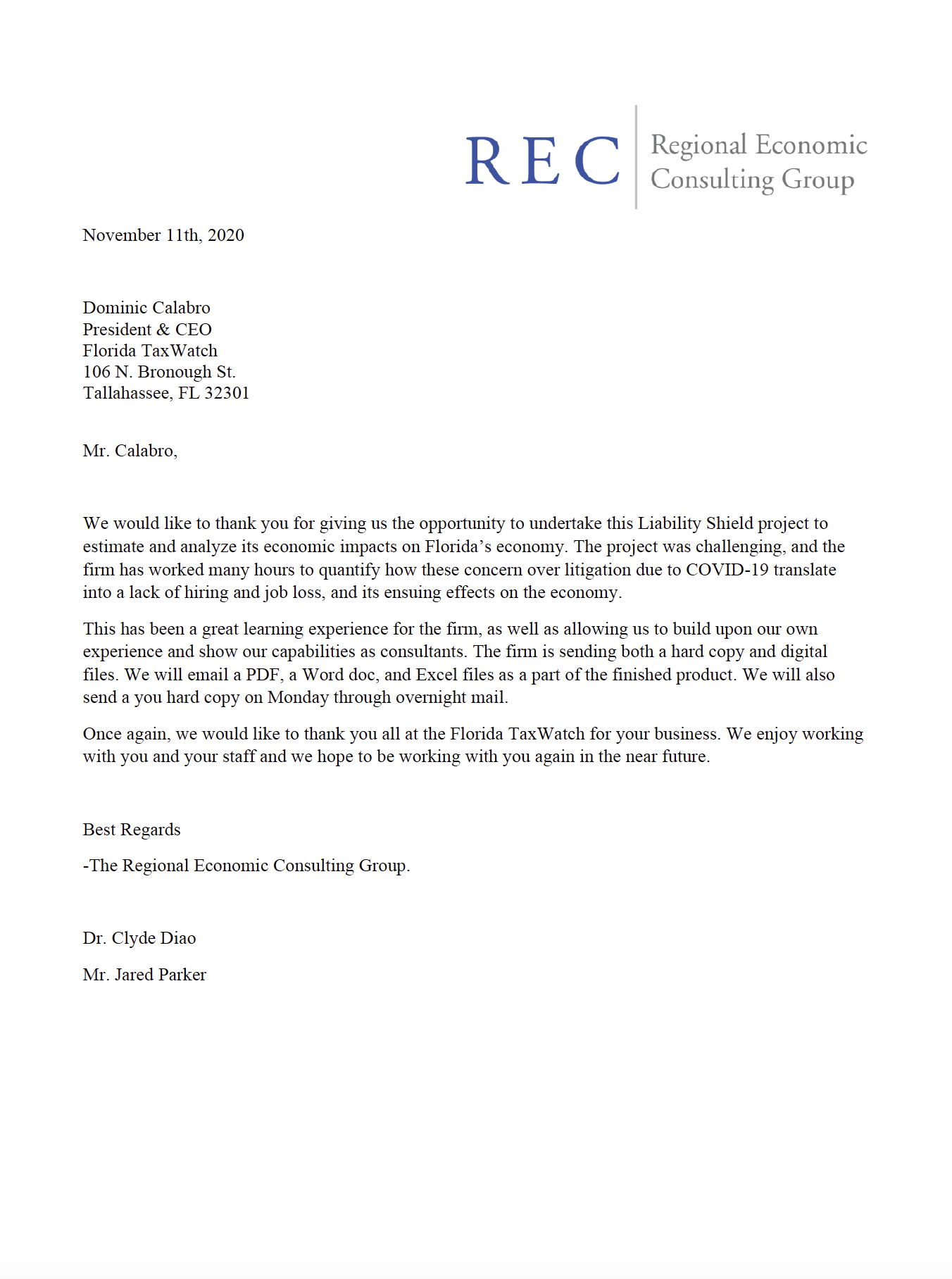The Best Defense Is A Good Offense: The Economic Impact of Protecting Responsible Floridians from COVID-Related Civil Liability


As the impacts of the COVID-19 pandemic continue to be felt by Florida’s businesses, non-profits, schools, colleges and universities, and healthcare providers, employers of all types are fearful of keeping their business open or reopening their business because of the threat of opportunistic, predatory, and expensive litigation resulting from alleged exposure to COVID-19 when they are taking proper precautions.
The findings show that the economic impacts of employer concern due to potential litigation from COVID-19 are significant and act as a drag on the economy to operate at its full potential. Responsible nonprofit organizations, business owners, and other covered entities who are acting in good faith to comply with public health directives and are investing in measures to protect their patrons and employees must have comfort that they will be able to open and operate their business without fear of opportunistic, predatory, and expensive litigation. It is also important to make sure that those acting in “bad faith” are held accountable for their negligence while ensuring that those who contract COVID-19 because of the gross negligence of others can recover for their injuries.
Read the report below.